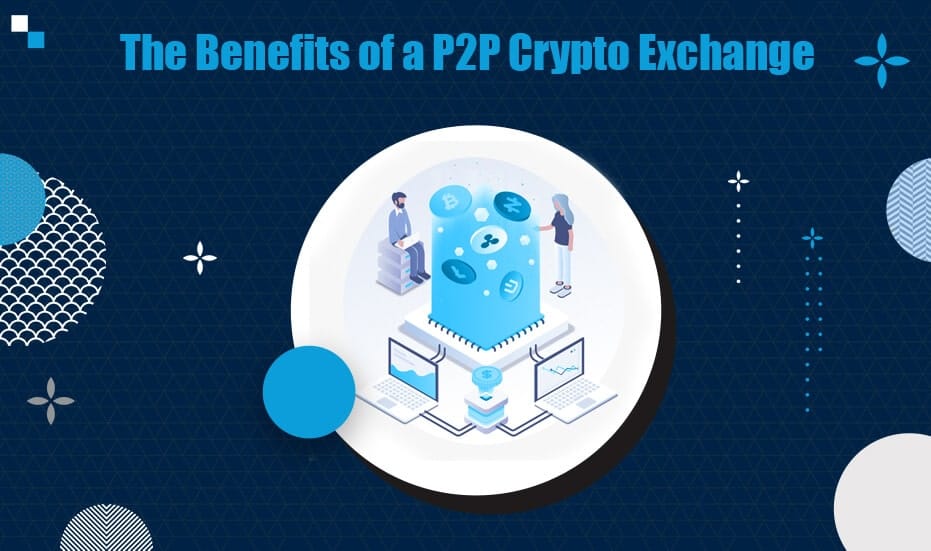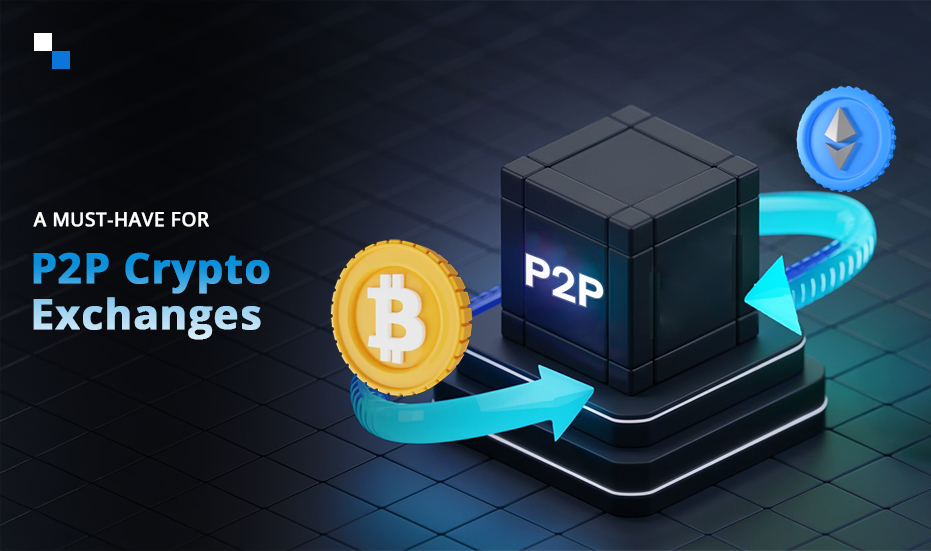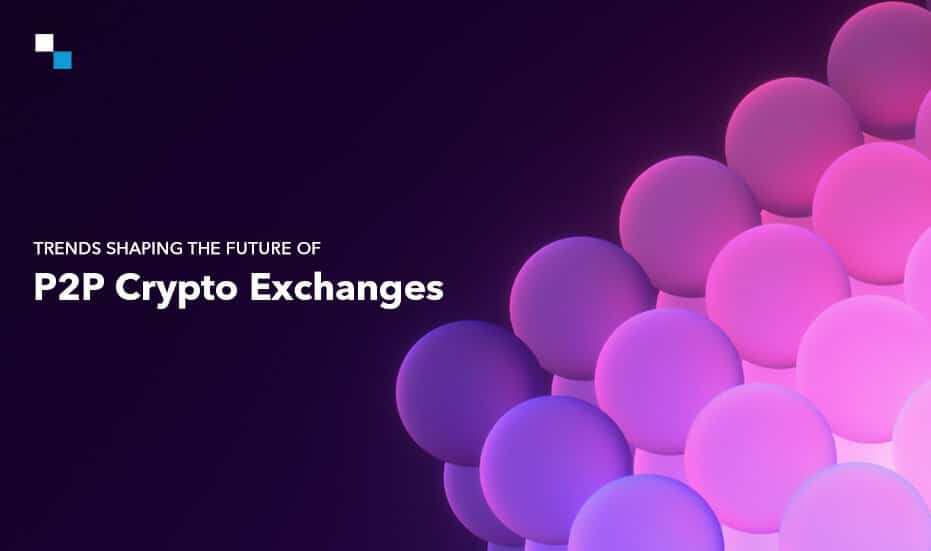
Building a Secure DeFi Crypto wallet
February 10, 2021
Understanding DeFi Lending and Borrowing
February 18, 2021Bitcoin was designed to manifest complete decentralization of money. However, as the crypto space evolved, a number of centralized crypto exchanges mushroomed. While these exchanges make crypto assets easily accessible, these also work as a single point of failure. Apart from this, these cryptocurrency exchanges are run by centralized organizations that act as an intermediary. Thus, even when the assets being traded are decentralized in nature, the instrument used to trade them is centralized. This defeats the entire purpose of the concept.
This is where peer-to-peer (P2P) exchanges come into the picture. A P2P exchange provides crypto traders with a marketplace where they can directly connect without the intervention of any trusted third party.
Upsides of a P2P crypto exchange
The following are the benefits of a P2P crypto exchange, which has fuelled the demand for P2P crypto exchange development.
- Resistant to transaction censorship
Recently, the Central Bank of Nigeria (CBN) ordered banks to close down the accounts associated with cryptocurrencies. Effectively, the banks have cut ties with crypto exchanges. As a result, crypto traders are facing problems in liquidating their assets. Users never want this to happen to their funds. Thus, Nigerians are now heading towards P2P exchanges because no government intervention can stop the trading on P2P exchanges.
A peer-to-peer exchange is an appropriate alternative to such censorship by regulatory bodies. That’s because a P2P exchange directly connects the two traders. Both the traders can choose to settle the payments in cash or direct bank transfers. As there is no central body involved, such government regulations have no impact on P2P transactions.
- Global transaction support
Some governments do not allow regular crypto exchanges to operate in their jurisdiction. As a result, crypto enthusiasts in such countries cannot trade in crypto. However, these traders can always use a P2P exchange that enables fast, global, efficient, and cost-effective transactions.
- Lower transaction fees
Centralized exchanges involve the participation of intermediaries like asset custodians who need to be paid. Apart from that, these exchanges need staff to run the operations. All this adds up to the operational cost of the exchange. As a result, the exchange user ends up paying up these costs in terms of transaction fees. However, P2P crypto exchange development eliminates third-party involvement, thereby automatically matching the traders. As a result, there is a minimum cost associated with the transaction execution. Thus, the P2P exchange users end up paying lesser fees in comparison to the regular exchanges.
Develop your own P2P Crypto Exchange
Schedule Free Demo- Privacy Matters
The regular cryptocurrency exchanges need to adhere to government regulations to avoid getting penalized. As a result, these exchanges enforce AML and KYC regulations on their users. Apart from this, there have been incidents when authoritative agencies like the IRS have asked centralized exchanges to share user data of particular wallet addresses like name, address, SSN, and more. Thus, user’s privacy with these exchanges is always at stake.
Interestingly, the P2P exchanges cannot be regulated by government agencies. As a result, such regulations cannot impact the privacy of the users and their cryptocurrency transactions.
- Better Security
A regular centralized exchange requires a trader to hand over their assets to the exchange to conduct a trade. As a result, the user funds security is completely in the hands of the exchange. Unfortunately, every now and then leading centralized exchanges lose user funds to hacker attacks.
On the contrary, P2P exchanges do not hold users’ funds. This is because they only connect the traders, who are not required to transfer their assets to the exchange. The traders have complete control over their assets. Thus, the security of the funds is ensured by the users only.
- Fraud Prevention
A P2P model is a very open setup. As a result, it might become difficult for the platform users to trust each other. To overcome this challenge and prevent fraud, P2P exchanges integrate solutions like reputation management or obligatory deposits or face-to-face meetings.
A reputation management system allows traders to find a trustworthy buyer or seller. On the other hand, the obligatory deposit system asks both parties to deposit a certain amount of crypto funds. If the trade goes well, this obligatory fund is released. Otherwise, it is used to compensate the trader who was put to loss due to a misconduct trade.
Are there any downsides of P2P crypto exchange development?
Before you buy P2P exchange software, make sure you read through some of the challenges that a P2P exchange operator might face.
1) Longer trade times – For a trade to complete on a P2P exchange, the software needs to find an actual seller and a buyer. Only when there is an exact match can a trade go through. As a result, this model leads to longer trade times. The best way to overcome this is to have more traders on the platform so that the probability of finding the counterparty becomes easy.
2) Liquidity challenges – Professional traders seek fast transactions. However, P2P exchanges might take time to build liquidity and thus the transactions might get delayed. However, the solution to this problem is the same – attract more traders.
If you are planning to build a P2P crypto exchange, Antier Solutions can help. We provide a white label P2P exchange solution that expedites the P2P crypto exchange development process and can help you quickly launch your platform into the market. In addition, we specialize in building a custom P2P crypto exchange from scratch.
Schedule a free demo of our white label P2P exchange software or connect with our subject matter experts to share your needs for a custom exchange built from the ground up.



